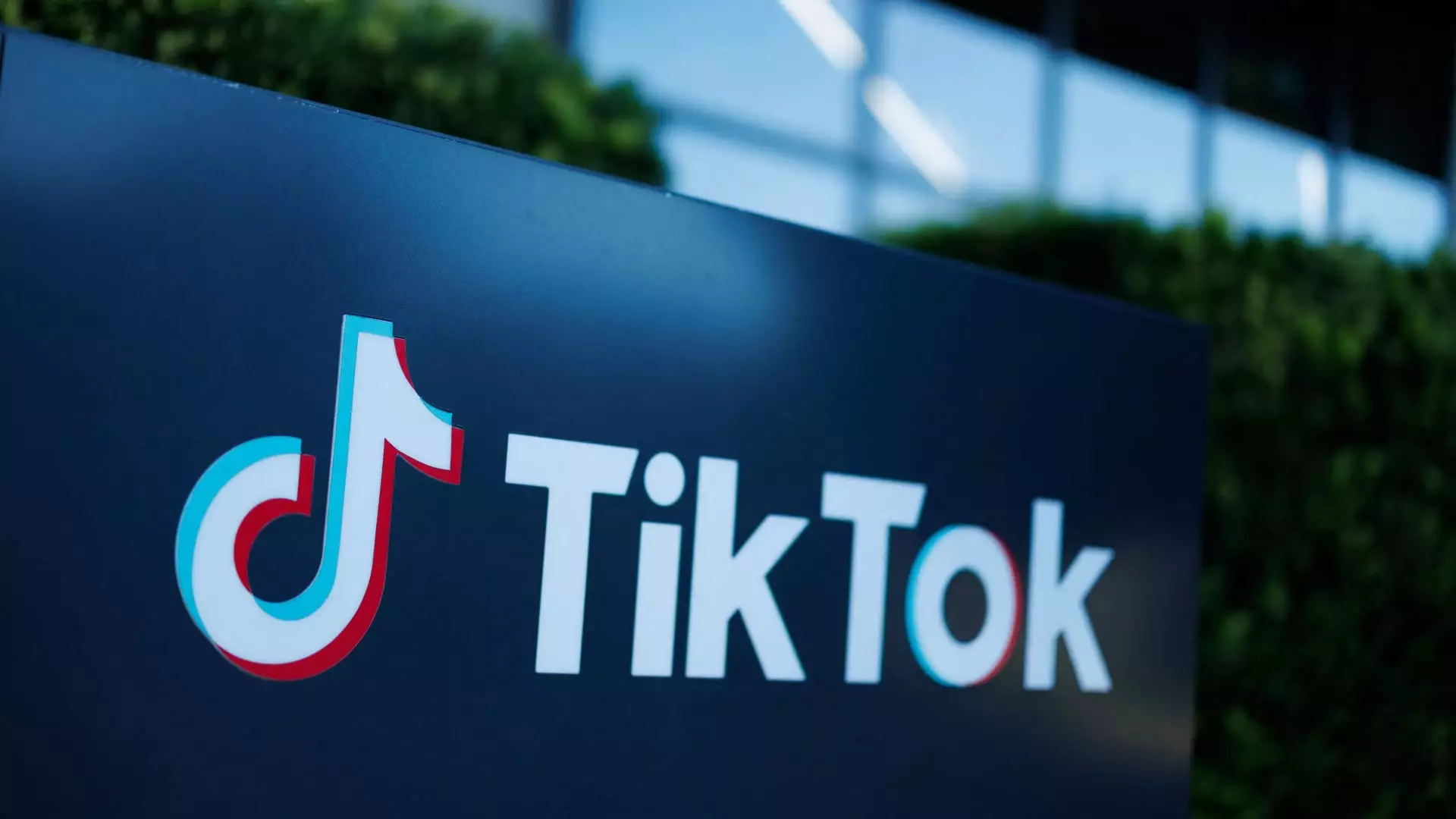In a world where digital platforms are becoming central to social interaction and entertainment, concerns are growing regarding the ethical implications of these services, particularly concerning vulnerable users such as children and teenagers. Recent allegations against TikTok have surfaced, highlighting an unsettling pattern of financial exploitation aimed at its younger audience. Spearheaded by Brian Schwalb, the attorney general for the District of Columbia, a lawsuit has been filed asserting that TikTok’s operations are reminiscent of predatory gambling, thus demanding urgent scrutiny and accountability.
The crux of the allegations is the claim that TikTok operates an unlicensed virtual currency system that exploits children financially. This critique sees the platform’s virtual currency, TikTok Coins, likened to poker chips used in casinos—an unsettling comparison when considering the demographic involved. This broad spectrum of complaints, endorsed by a coalition of 13 bipartisan attorneys general, emerges from established concerns of mental health impacts and the overarching deceit surrounding the potential detrimental effects of social media on young users.
The lawsuit raises significant concerns about TikTok’s financial framework, which has been described as troublingly analogous to gambling, particularly due to its lightweight age-verification measures. The process allows children to use real money to acquire virtual tokens that can then be exchanged for digital gifts during livestreamed content sessions. Notably, this exchange system pays content creators half of the revenue, while TikTok retains a commission that could escalate to 50%. This raises critical ethical questions about how profit is generated from child engagement on the platform without the necessary regulatory oversight.
The allegations further emphasize how children are able to bypass age restrictions, effectively putting them in a position where they can engage in financial transactions that they may not fully comprehend. Critics argue that this ease of transaction is built upon an infrastructure that favors profit over protection, thus straying into harmful territory. The ramifications of such a setup cannot be overstated, as it effectively results in the extraction of real financial resources from a demographic that lacks the maturity to navigate these transactions wisely.
The fundamental question posed by this lawsuit is whether TikTok has violated existing state laws governing financial transactions, particularly regarding the protection of minors. The prevailing legal landscape is designed to step in and safeguard young individuals from exploitation, recognizing their limited capacity for financial decision-making. As social platforms like TikTok resemble online marketplaces, they blur the lines between entertainment and commerce, raising the stakes for their young users.
In light of these developments, experts in the field of technology and education have begun suggesting that increased regulatory scrutiny may be necessary. Gabriel Robins, a computer science professor and industry expert, poignantly notes that children are often dazzled by the enticing visuals and joys presented on platforms like TikTok, making them easy targets for manipulation. The allure of virtual economies coupled with a lack of transparency poses numerous challenges in ensuring the safety and well-being of young users.
If the allegations against TikTok are substantiated, it may prompt significant consequences not just for the platform itself but also for the broader social media landscape. Experts suggest that this lawsuit could serve as a catalyst for other platforms to revisit their economic frameworks and the inherent risks associated with monetizing young audiences. Brooke Erin Duffy, a communication professor, notes that the ongoing dialogue sparked by the TikTok lawsuit could lead to a reconsideration of how platform companies define and regulate their financial operations, particularly with respect to age-appropriate practices.
The ongoing evolution of digital currencies alongside the rise of online creators necessitates a sharable responsibility between tech companies, lawmakers, and parents. It is crucial that the dialogue around protecting minors resonates within the very fabric of digital innovation. As discussions on the ethical deployment of technology continue, proactive measures must be undertaken to create a safer online environment for children that fosters creativity without jeopardizing their financial well-being.
The allegations leveled against TikTok underscore a critical issue that requires immediate attention and sensible intervention. It is a clarion call not just for regulatory reform, but also for greater industry accountability toward the youngest and most impressionable members of our digital society.

Leave a Reply